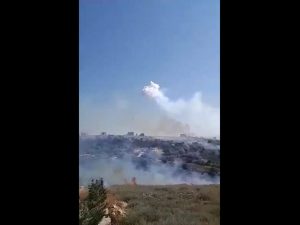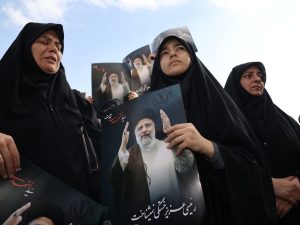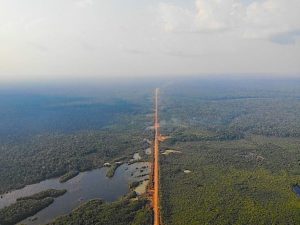Jihadist forces have invaded the Syrian city of Aleppo (Heleb) as part of a new escalation in the country’s ongoing proxy war. But the Kurdish-majority neighbourhoods of Sheikh Maqsoud (Şêxmeqsûd) and Ashrafiyeh have been resisting the invading extremists. And the Canary spoke to a resident of Sheikh Maqsoud to find out more about the situation.
A jihadist offensive backed by NATO superpower Turkey
Al-Qaeda offshoot Hayat Tahrir al-Sham (HTS) has invaded Aleppo in recent days. As has often been the case with jihadist groups in Syria, NATO’s second-largest army Turkey has given HTS its ‘tacit approval’. The war-criminal NATO superpower also essentially controls the Syrian National Army (SNA), which took advantage of the HTS advance to invade and occupy areas to the north of Aleppo. Invaders have reportedly abducted Kurdish women and carried out executions, with the Syrian Observatory for Human Rights warning that the coming days could bring even more atrocities. Thousands of civilians have now managed to escape to safety in the east to avoid potential massacres.
Turkey has been adding to Syria’s suffering for years via its anti-Kurdish campaign of ethnic cleansing and illegal occupation in northern Syria. And the NATO superpower’s jihadist friends in the HTS are now laying siege to the progressive and independent Kurdish-majority neighbourhoods of northern Aleppo. Journalist Amberin Zaman noted the response of a prominent Turkish politician, who said Aleppo:
is Turkish and Muslim to its very marrow. It is not just us who says so, history says so, geography says so. The Turkish flag that was hoisted over Aleppo citadel says so.
Around 100,000 civilians reportedly live in these largely Kurdish areas of Aleppo, which have become a safe haven for many during the war. Attacks on them have unfortunately been commonplace since Syria’s proxy war started in 2011, so they have grown resilient and are refusing to back down. Volunteers have stepped up to defend the neighbourhoods at night, and the official self-defence forces have been trying to negotiate with the invaders to end the siege. Nonetheless, the food supply is low right now, and the situation is a real cause for concern.
Aleppo resident: “We deserve to live in peace”
The Canary spoke to Sheikh Maqsoud resident Menan Cehfer, who is a translator. He said:
Access of food is so rare, but there is water. The food supply is cut since the attacks.
With a few hundred people protecting the neighbourhood from the invaders, Cehfer insisted that civilians can only move around during the day. At night, it’s too dangerous, so there’s a curfew.
The situation is tense. But there have been negotiations to allow around six hours of electricity a day. And there has reportedly been a “promise not to attack on civilians”. The HTS focus for now appears to be attacking government facilities. As Cehfer explained:
They go after former soldiers of the Assad government. But the airplanes follow them closely, while they hide between civilians. They are in the city of Aleppo. They don’t stay in one place. They always move and attack old establishments of the Assad regime.
He believed that many people in the city were actually sympathetic to the invasion, “except Christians, Yazidis and Kurds” who have faced numerous abuses from jihadists previously during Syria’s 13-year conflict.
“We deserve to live peacefully”
Since 2011, Cehfer told us:
I feel as if the Third World War is happening. Often the sense of darkness, famine, immigration and frustration. In Syria, we moved five times from one place to another in north-eastern Syria. I know many people spread all over the world.
He implored the international community to “stop the massacres”. And he insisted:
The only hope is peace and settlement.
The 22nd round of the Astana Process peace talks took place last month in Kazakhstan. However, with regional and international superpowers standing to benefit from keeping Syria at war (particularly in light of the country’s previous solidarity with Palestine), a settlement seems unlikely unless there is mass campaign of public pressure.
Featured image via the Canary




